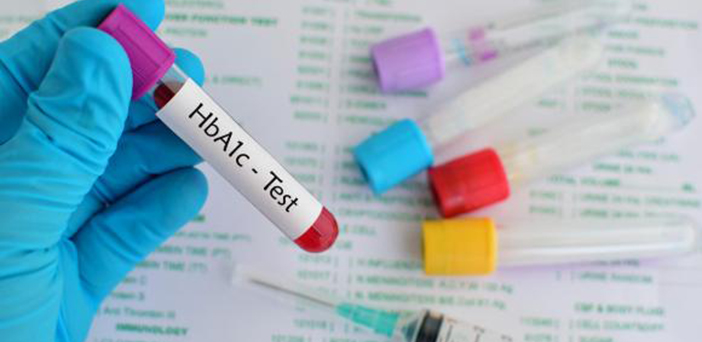Sickle cell trait may lower blood sugar readings, causing missed diagnoses and treatment.
A new study in JAMA provides evidence that hemoglobin A1c (HbA1c), a common blood biomarker used to measure blood sugar over time, may not perform as accurately among African-Americans with sickle cell trait and could be leading to a systemic underestimation of blood sugar control among that population.
Sickle cell trait (SCT) is a genetic hemoglobin variant found in 8 to 10 percent of African-Americans. It occurs in people with one copy of the mutation that, if they had two copies, would result in sickle cell disease.
The analysis of data from more than 4,600 people participating in two major studies found that HbA1c readings were significantly lower in individuals with SCT than in those without SCT, even after accounting for several possible confounding factors.
“We found that HbA1c was systematically lower in African-Americans with sickle cell trait than those without sickle cell trait despite similar blood sugar measurements using other tests,” says lead author Mary Lacy, a doctoral candidate at the Brown School of Public Health. “We might be missing an opportunity for diagnosis and treatment of a serious disease.”
Indeed, Lacy and her co-authors found that using standard clinical HbA1c cutoffs resulted in identifying 40 percent fewer potential cases of prediabetes and 48 percent fewer potential cases of diabetes in people with SCT than in people without SCT. Meanwhile, when the authors used other blood glucose measures as the diagnostic criteria, they found no significant difference in the likelihood of diabetes and prediabetes among patients with or without SCT.
The questions the study raises about using HbA1c among sickle cell trait carriers matter for treatment as well as diagnosis, adds study senior author Wen-Chih Wu, MD F’02 MPH’10, a cardiologist at the Providence Veterans Affairs Medical Center and associate professor of medicine (research) at the Warren Alpert Medical School.
“The clinical implications of these results are highly relevant,” Wu says. “For patients with diabetes, HbA1c is often used as a marker of how well they are managing their diabetes, so having an underestimation of their blood sugars is problematic because they might have a false sense of security, thinking they are doing OK when they are not.”
Click here to read more.




